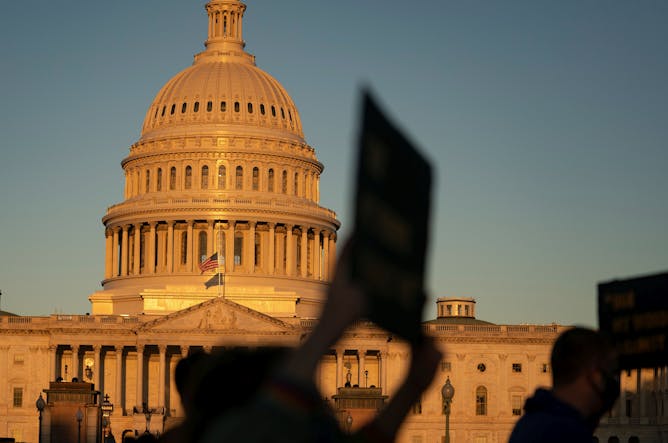|
There are days when I have to turn off the news alert on my mobile; it’s like listening to a frantic drum solo. Given the volume and frequency of the news, sometimes the thing that seemed most important for us to cover on Monday has been superseded by an even crazier and more important thing that happened Thursday.
This past week, though, it wasn’t hard to figure out the biggest story: Ruth Bader Ginsburg’s death and the politics of a new justice’s confirmation. One scholar wrote about how other countries ensure that the naming of high court justices doesn’t turn into a partisan conflict; another demonstrated that Ginsberg’s landmark work to advance women’s rights has led to advances in the rights of the LGBTQ community as well. We had a story examining how a 6-3 conservative dominated court would likely rule – ending with the observation that state-level elected officials may soon be “the guardians of individual liberties, shifting power from courts to elections.”
And of course, we had some election stories, from how some noted journalists in the past absolutely hated political polling to how first-generation and Asian American and Pacific Islander students
should be a particularly rich target for get-out-the-vote efforts.
Gotta go – my news alerts are beeping.
|

Demonstrators outside the U.S. Capitol on Sept. 21 called on the Republican-controlled Senate not to confirm a new justice until the next president is in office.
Alex Edelman/AFP via Getty Images
David Orentlicher, University of Nevada, Las Vegas
The Supreme Court doesn't have to be so polarized. Many European countries make judicial appointments in a term-limited, intentionally depoliticized way to promote consensus and compromise.
|

Michael Widomski, left, and David Hagedorn at the makeshift memorial for Justice Ginsburg in front of the U.S. Supreme Court on Sept. 20, 2020 in Washington, DC. Ginsburg officiated their wedding in 2013.
Samuel Corum/Getty Images
Penny Venetis, Rutgers University Newark
Ruth Bader Ginsburg's death sparked many tributes to her work ending sex discrimination against women. That work also paved the way for successes in the fight for equal rights for the LGBTQ community.
|
|
|
-
Morgan Marietta, University of Massachusetts Lowell
A 6-3 conservative court will hear a broader range of controversial cases, shift interpretations of individual rights and put more pressure on local democracy to make policy decisions.
-
W. Joseph Campbell, American University School of Communication
There was a time when well-known journalists resented preelection polls and didn’t mind saying so. One even said he felt “secret glee and relief when the polls go wrong.” Why did they feel this way?
-
Matthew J. Mayhew, The Ohio State University; Christa Winkler, Mississippi State University; Kevin Singer, North Carolina State University; Musbah Shaheen, The Ohio State University
Researchers examined the voting behavior of 5,762 students at 120 colleges and universities. Two groups stood out as an untapped electoral resource – if the candidates can turn out Gen Z.
-
Matthew Dahl, University of Notre Dame
A quantitative analysis of potential nominees to the Supreme Court reveals that conservatives could get a real lock on the nation's highest court.
|
|